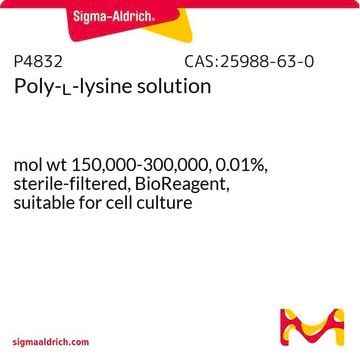AB1252
Anti-Cytochrome P450 Enzyme CYP2E1 Antibody
serum, Chemicon®
Sinónimos:
cytochrome P450 2E1, cytochrome P450, family 2, subfamily E, polypeptide 1, cytochrome P450, subfamily IIE (ethanol-inducible), polypeptide 1, flavoprotein-linked monooxygenase, microsomal monooxygenase, xenobiotic monooxygenase
About This Item
Productos recomendados
biological source
rabbit
Quality Level
antibody form
serum
antibody product type
primary antibodies
clone
polyclonal
species reactivity
rat, human, mouse
manufacturer/tradename
Chemicon®
technique(s)
immunohistochemistry: suitable
western blot: suitable
NCBI accession no.
UniProt accession no.
shipped in
wet ice
target post-translational modification
unmodified
Gene Information
human ... CYP2E1(1571)
mouse ... Cyp2E1(13106)
rat ... Cyp2E1(25086)
General description
Most CYPs can metabolize multiple substrates, and can catalyze multiple reactions. This accounts for their central importance in metabolizing the extremely large number of endogenous and exogenous molecules. In the liver, these substrates include drugs and toxic compounds as well as metabolic products such as bilirubin (a breakdown product of hemoglobin). Cytochrome P450 enzymes are present in many other tissues of the body including the mucosa of the gastrointestinal tract, and play important roles in hormone synthesis and breakdown (including estrogen and testosterone synthesis and metabolism), cholesterol synthesis, and vitamin D metabolism. More than 7700 distinct CYP sequences are known as of September 2007.
Specificity
Application
A previous lot was used on formaldehyde treated and frozen sections.
Optimal working dilutions must be determined by end user.
Quality
Western Blot Analysis:
1:1000 dilution of this antibody detected Cytochrome P450 CYP2E1 on 10 μg of Human brain lysates.
Target description
Physical form
Analysis Note
Liver tissue.
Legal Information
¿No encuentra el producto adecuado?
Pruebe nuestro Herramienta de selección de productos.
Storage Class
10 - Combustible liquids
wgk_germany
WGK 1
flash_point_f
Not applicable
flash_point_c
Not applicable
Certificados de análisis (COA)
Busque Certificados de análisis (COA) introduciendo el número de lote del producto. Los números de lote se encuentran en la etiqueta del producto después de las palabras «Lot» o «Batch»
¿Ya tiene este producto?
Encuentre la documentación para los productos que ha comprado recientemente en la Biblioteca de documentos.
Nuestro equipo de científicos tiene experiencia en todas las áreas de investigación: Ciencias de la vida, Ciencia de los materiales, Síntesis química, Cromatografía, Analítica y muchas otras.
Póngase en contacto con el Servicio técnico








